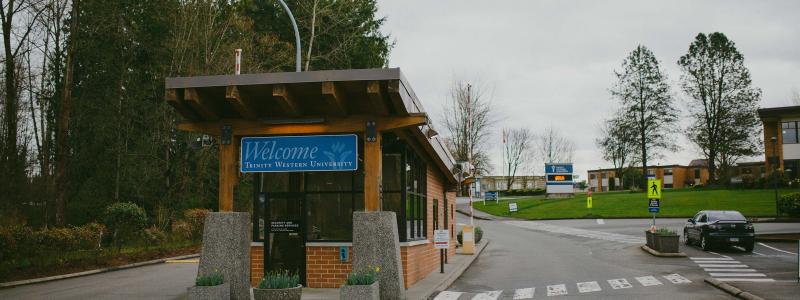Trinity Western University is heading back to court to confirm that the Law Society of B.C. must recognize graduates of TWU’s proposed School of Law. The hearing begins on June 1 at 10 a.m. at the Court of Appeal in downtown Vancouver.
“This is about far more than the right to open a law school,” said TWU spokesperson Amy Robertson. “The B.C. appeal justices are deciding on an issue that will affect freedom for everyone—not just faith communities. At TWU we believe in upholding the freedom of all Canadians to believe as they choose and practice accordingly. Canada is a diverse, tolerant society, which means we are committed to living peacefully together even when we disagree. Many in the world don’t enjoy the same privilege.”
In April 2014 the Law Society of British Columbia voted to accept graduates of TWU’s proposed School of Law, but reversed its decision after a lawyers’ referendum later that year. TWU took the Society to court in August 2015, and Chief Justice Hinkson ruled in December 2015 that the Law Society’s original decision should be restored. The Law Society is appealing the ruling this week before a five-justice panel.
“As the Chief Justice affirmed in December, the decision to approve TWU law school graduates must be based not on personal opinions and feelings, but on the law and evidence,” said Earl Phillips, the executive director of TWU’s proposed School of Law. “The evidence shows that TWU teaches its students to work and live with the highest levels of skill and integrity. We hope the Court of Appeal will arrive at the same conclusion.”
This is the second appeal hearing for TWU’s School of Law in as many months. Oral arguments were heard in Nova Scotia in April 2016, and a decision is pending. Next week TWU will head to the Court of Appeal of Ontario, where a similar appeal will be heard from June 6 to 8.
At issue is TWU’s Community Covenant, which sets the standards by which students, faculty and staff commit to how they will live, work and study together while at TWU. It includes a commitment to abstain from sexual intimacy outside of marriage. The Covenant follows the historical Christian definition of marriage as between a man and a woman.
Some have asked why TWU does not simply eliminate the Community Covenant or make it voluntary.
“The Community Covenant is a core part of defining the TWU community as distinctly Christian,” said Robertson. “We are not making a statement about LGBTQ people; we are making a statement about biblical marriage, which is sacred to us. The same covenant calls for all members of the TWU community to respect the dignity of others regardless of their background. Loving one another without exception is one of the most important principles of the Christian faith.”
LGBTQ students are welcome to attend the university and be open about their identities. “Based on my conversations with others in the TWU community, I know that LGBTQ students attend TWU, and they find it a safe, welcoming place to be,” said Robertson.
In 2001, the Supreme Court of Canada found no evidence that TWU graduates would discriminate against LGBTQ people. That’s proven to hold true over the last 15 years. TWU graduates, particularly from nursing, education, and business, are sought-after for their compassion and skill.
Follow TWU's proposed School of Law on Twitter and Tumblr for updates during the hearings.

